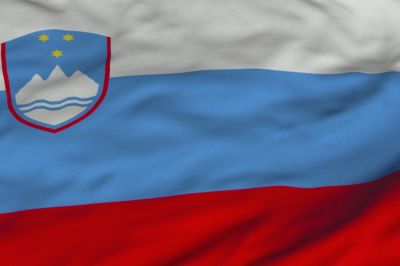Slovenia - first cycle programmes
Population (mln): 2,05
Official language/s: Slovene
Time zone: UTC+1 Winter, UTC+2 Summer
Internet TLD: .si
Calling code: +386
Member of the EU from: 1st May 2004
Unemployment rate Sep 2011 (%): 8.3
Unemployment rate under 25 years Sep 2011 (%): 15.6
Unemployment rate Sep 2012 (%): 9.5
Unemployment rate under 25 years Sep 2012 (%): 23.5
Population statistics 20-29 age group 2011 (%): 13,8
Country codes in education system: SI
Expected duration of education (years): 18,5
University
level first cycle study programmes according to the Bologna process: The fist
cycle has a binary structure and offers two types of study programmes:
university (academically-oriented) and professional programmes.
Duration of the
first cycle programmes is determined by years of study (three to four years)
and credit points (180 to 240 CP). In one academic year 60 CP can be obtained,
each CP representing 25 to 30 hours of student workload, which adds up to
between 1500 and 1800 hours annually. Study programmes leading to regulated
professions must comply with EU directives; therefore they can differentiate from
these rules. The new structure of studies should be gradually implemented. The
2009/2010 academic year has been set as the final time limit. Upon deciding to
introduce a new study programme it will no longer be possible to offer the old
one. This means that the 2008/2009 academic year will be the last one when
enrolment into current programmes is still possible.
However, three faculties
will offer accredited new study programmes to students already by the 2005/2006
academic year. University level first stage before the Bologna process (study
programmes present by 2016): University-level study programmes are of two
kinds: professional and academic. Professionally-oriented programmes are
somewhat shorter than academic ones. Officially, they last for three to four
years, which, including the absolventsko leto makes a total of four or five
years. The entrance requirement is either the matura examination, the poklicna
matura or the former final examination after completion of a four-year
secondary technical education programme.
Programmes include practical training
and lead to the diploma examination. Successful students are awarded a Diploma
with a professional title naming the field of study. The titles are Diplomirani
(abbreviated as dipl.) or Diplomirani inženir (abbreviated as Dipl. inž).
Students can enter the labour market or continue their studies at the
post-graduate level and obtain a specialist degree (Specializacija) or in
certain cases a Magisterij. The basic requirement for academic study programmes
is the Matura, the poklicna matura (and a matura examination in an additional
subject also grants admission to some types of programmes) or the final
examination after a completion of a four-year secondary programme. Academic
study programmes last between four and six years and lead to the Diploma
examination. Another year of studies, called absolventsko leto, should be added
to obtain the final duration of studies in years. This final year gives
students the opportunity to fulfill the academic requirements and prepare their
degree dissertation and its defence. Hence, studies last a year longer than
officially declared.
A successful student receives a Diploma with a
professional title including the field of study. The titles include :
Univerzitetni diplomirani (univ. dipl), Akademski (akad.), Univerzitetni
diplomirani inženir (univ. dipl. inž), Profesor (prof.), and titles such
as Doktor medicine (Dr. med), Doktor
dentalne medicine (Dr. dent.med.), Doktor
veterinarske medicine (Dr. vet. med.), Magister farmacije (Mag. farm),
which is an exception to the rule. A Diploma enables students to start work or
to continue their studies at the post-graduate level.
